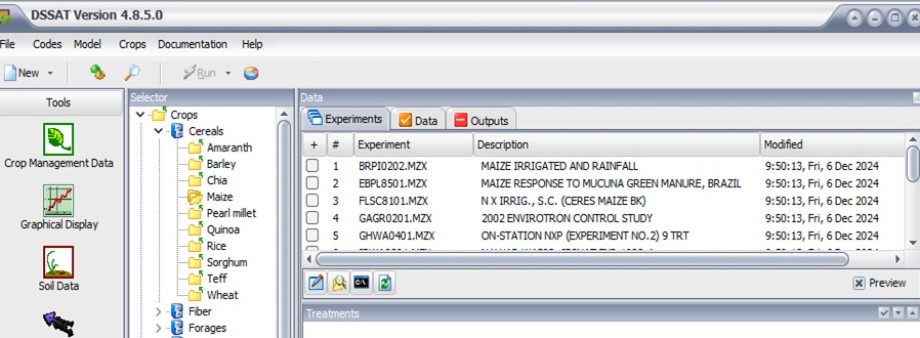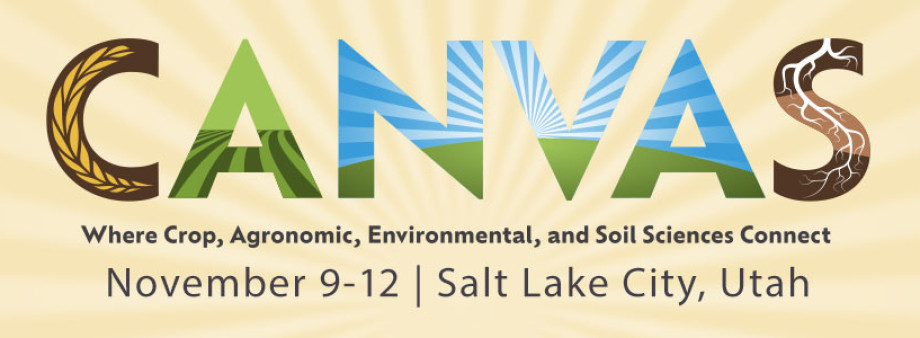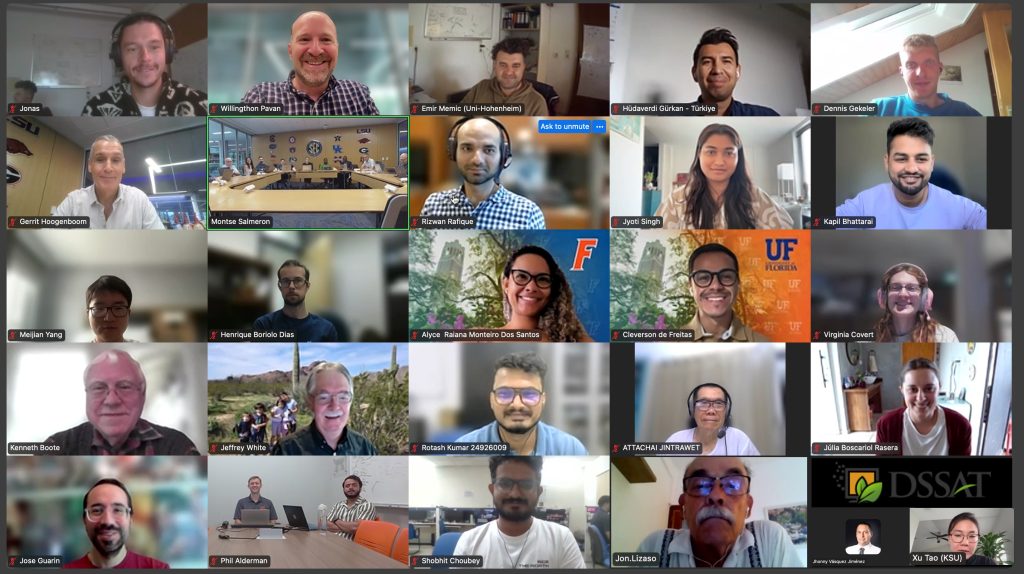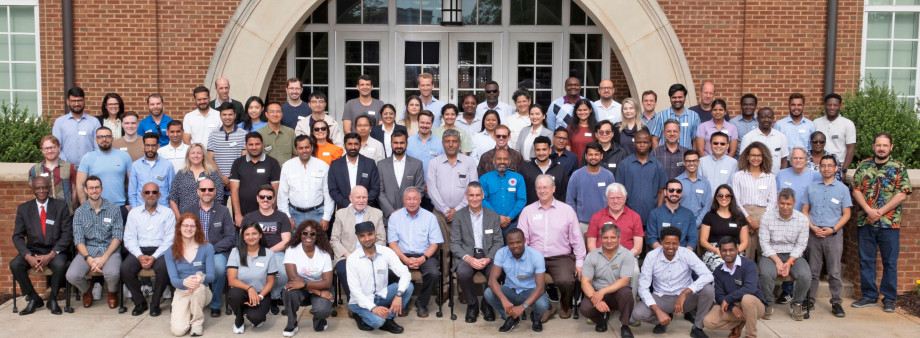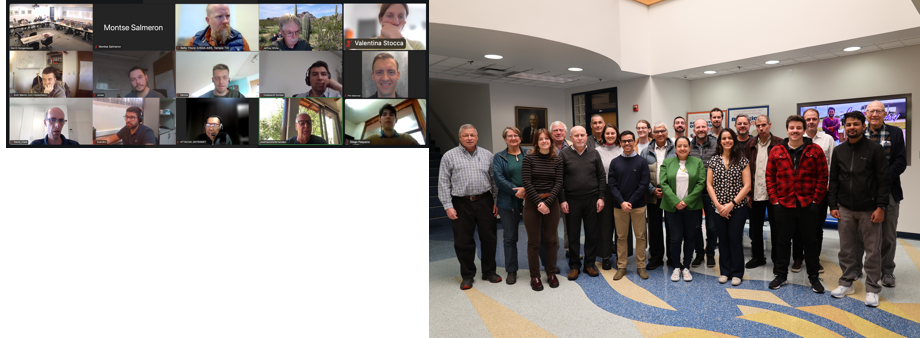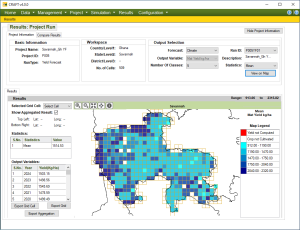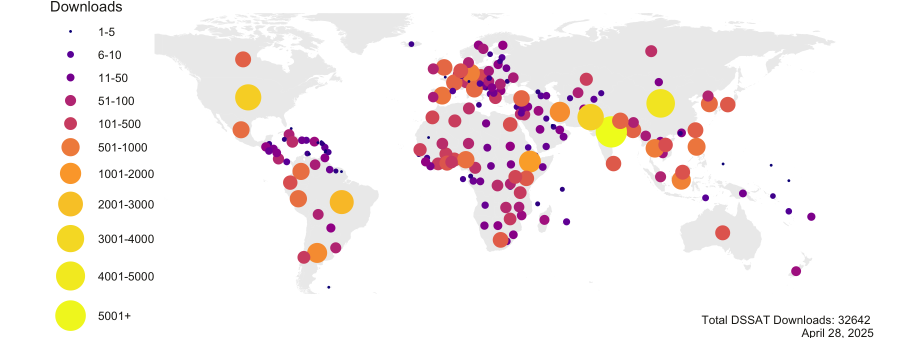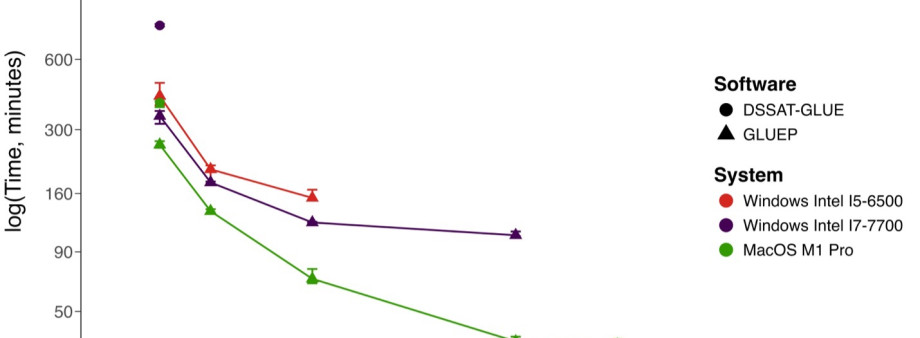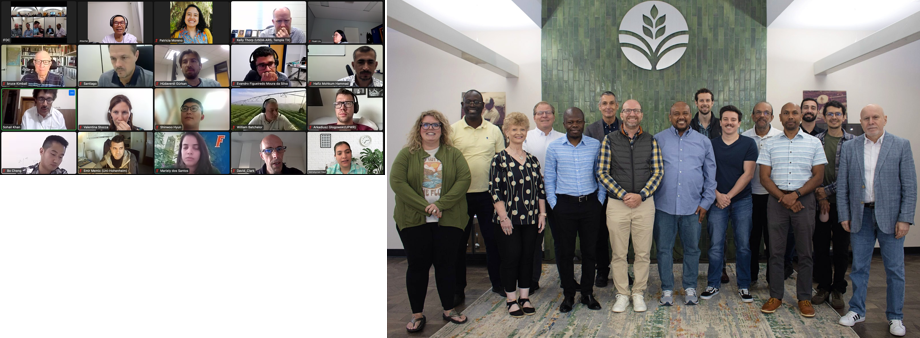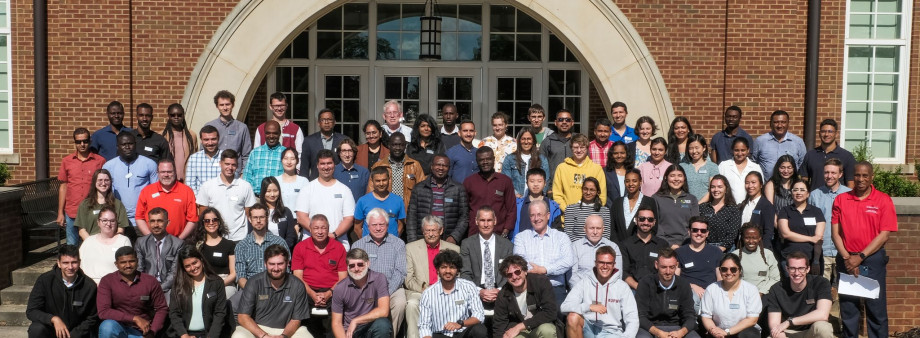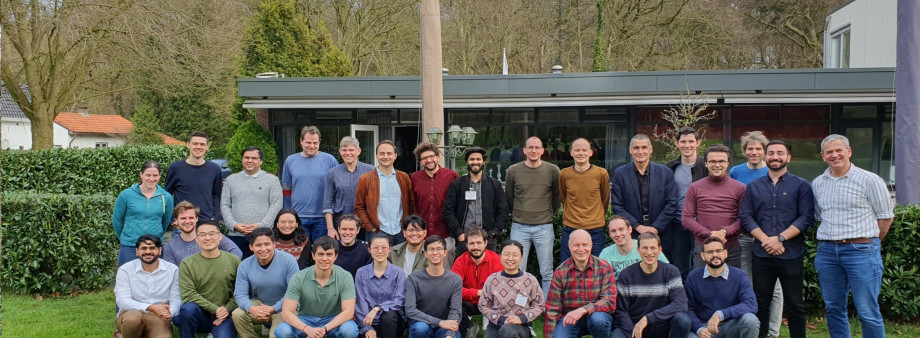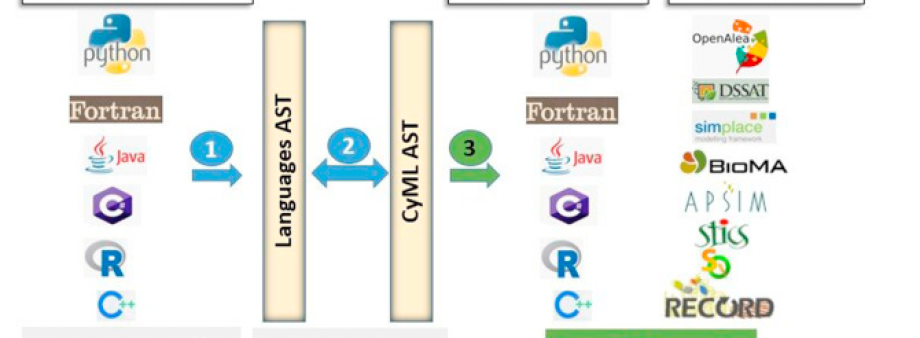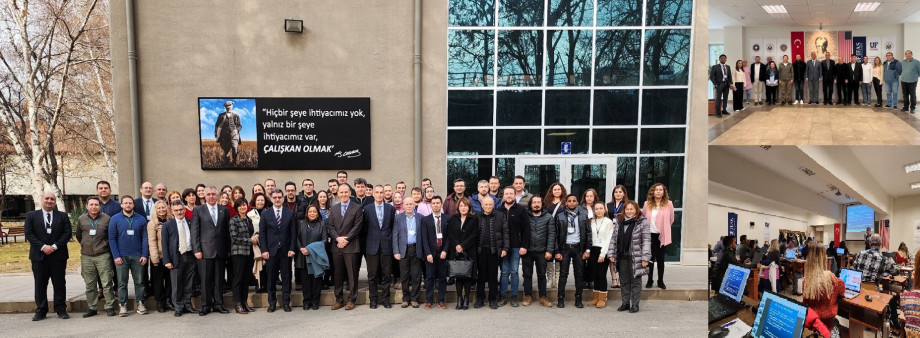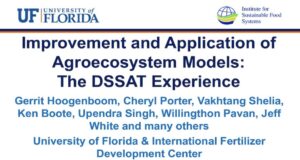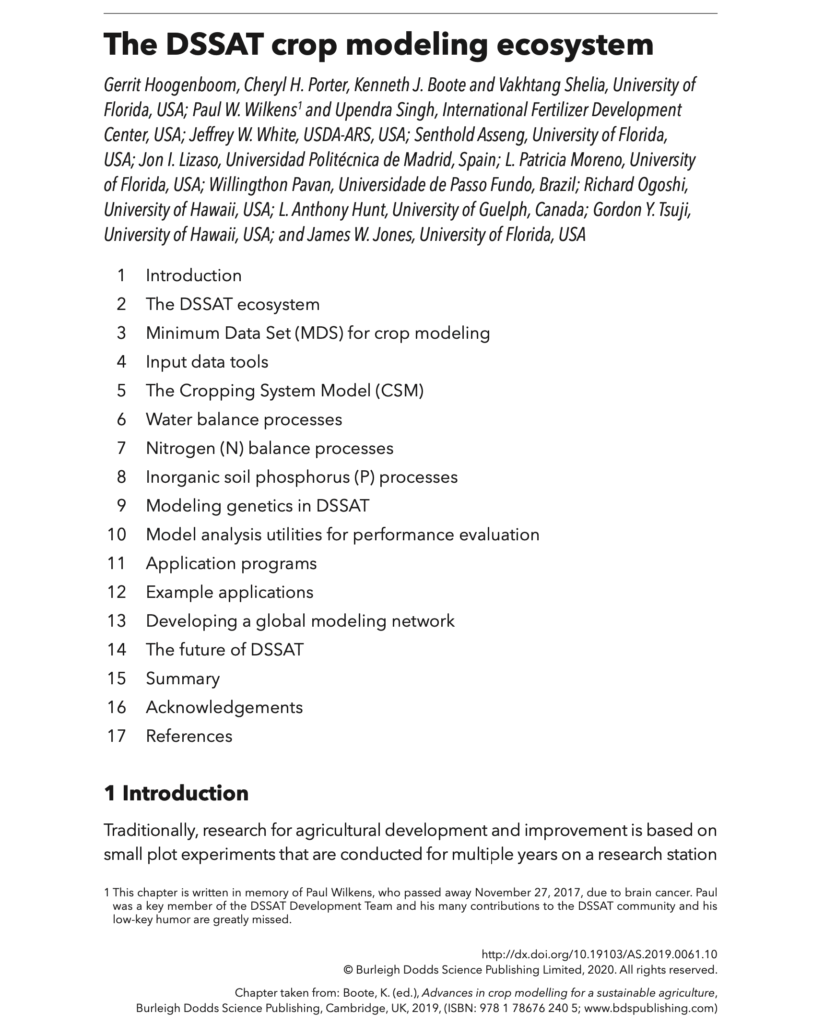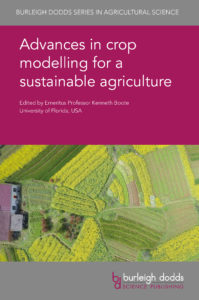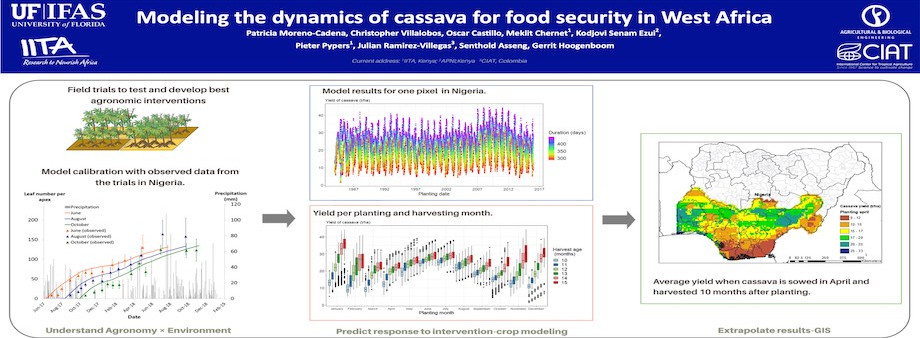14th Virtual DSSAT Development Sprint
The 14th DSSAT Development Sprint was held from January 11-15, 2021 as a Virtual Meeting due to continuing Covid-19 Pandemic. The DSSAT Development Sprint was hosted by the Institute for Sustainable Food Systems and the Department of Agricultural & Biological Engineering of the University of Florida. One of the main goals of the DSSAT Development […]
Reuse, don’t lose, process-based models and components
A new system automatically transforms existing process-based crop models into different languages and simulation platforms. This new approach, described in in silico Plants, will improve the reproducibility, exchange and reuse of process-based crop models (PBM). PBM are increasingly implemented as autonomous components describing each biophysical process. According to lead author, Dr. Cyrille Ahmed Midingoyi, researcher […]
Crop modeling takeaways from the 2020 CGIAR Convention
This is one of a series of blogs written by our Youth in Data delegates who participated in the 2020 CGIAR Convention on Big Data in Agriculture. The global event was held virtually 19-23 October 2020. Feature photo: Alfonso Cortés / CIMMYT. During my experience as a Youth in Data 2020 delegate at the 2020 CGIAR […]
13th Virtual DSSAT Development Sprint
The 13th DSSAT Development Sprint was held from July 20-24, 2020 as a Virtual Meeting due to continuing Covid-19 Pandemic. The DSSAT Development Sprint was hosted by the Institute for Sustainable Food Systems and the Department of Agricultural & Biological Engineering of the University of Florida. One of the main goals of the DSSAT Development […]
Scientists from IITA, Wageningen and University of Florida are Optimizing Crop Models for Improved Predictions
The African Cassava Agronomy Initiative (ACAI) project scientists are working on optimizing crop models to improve the prediction of the AKILIMO decision support tools. The team is evaluating the performance of the Light Interception and Utilization (LINTUL) and Decision Support System for Agrotechnology Transfer (DSSAT) to predict the attainable yield of cassava under well managed […]
Myles Fisher
On May 27, 2020, Dr. Myles Fisher passed away after suffering a stroke. Dr. Myles Fisher was an agronomist who after working for 22 years with the Australian Commonwealth Scientific and Industrial Research Organization (CSIRO), spent most of his career as a scientist associated with the International Center for Tropical Agriculture (CIAT) based in Palmira […]
New DSSAT Documentation
We recently published a chapter entitled “The DSSAT crop modeling ecosystem” in the book “Advances in Crop Modeling for a Sustainable Agriculture.” This chapter provides a brief history of DSSAT, an overview of its functionality and applications, and up-to-date information on the status of the DSSAT Cropping System Model (CSM) and the DSSAT tools, utilities […]

